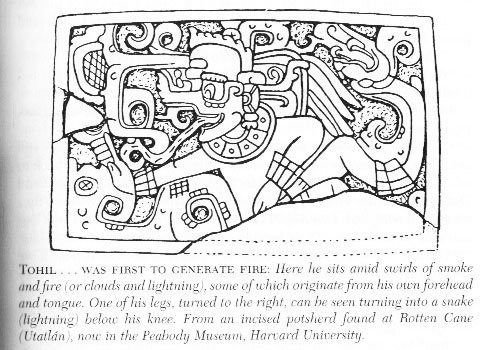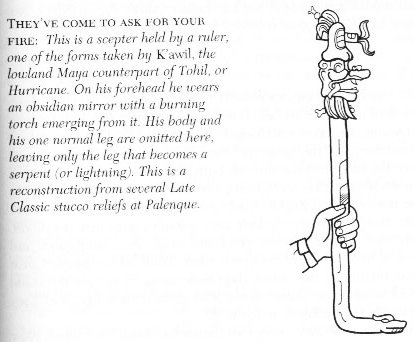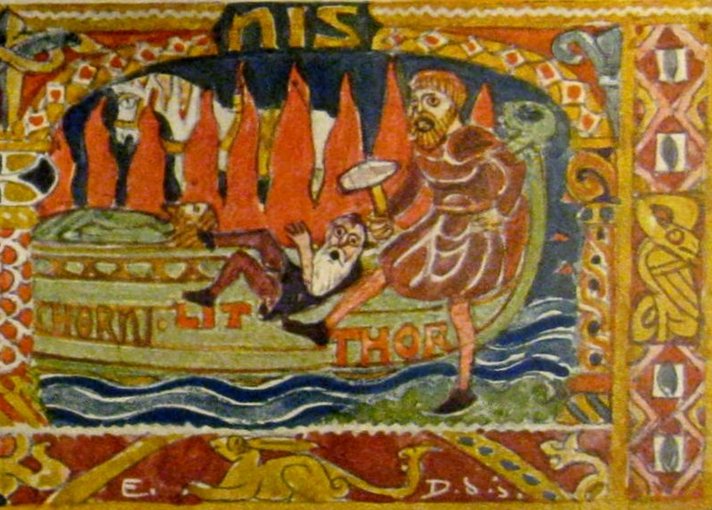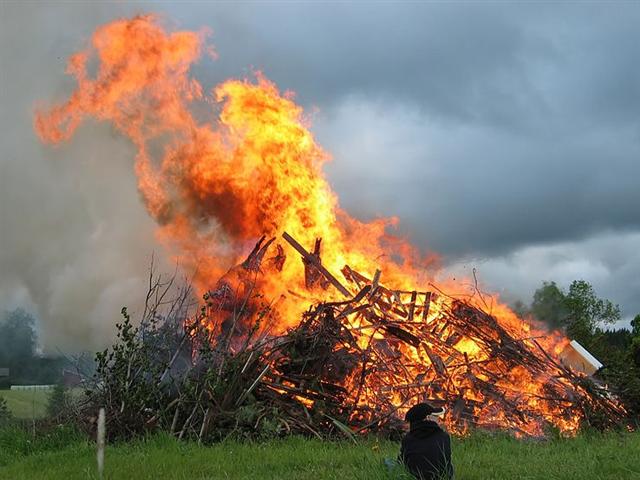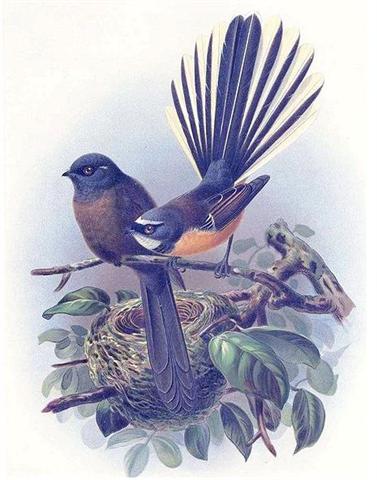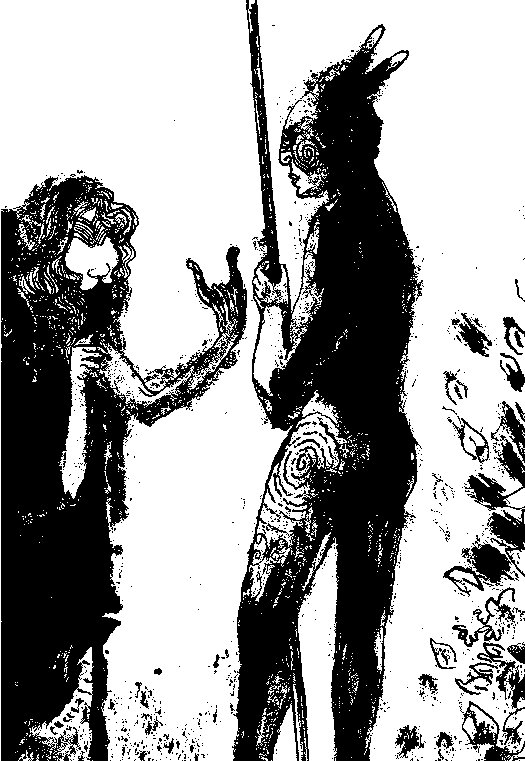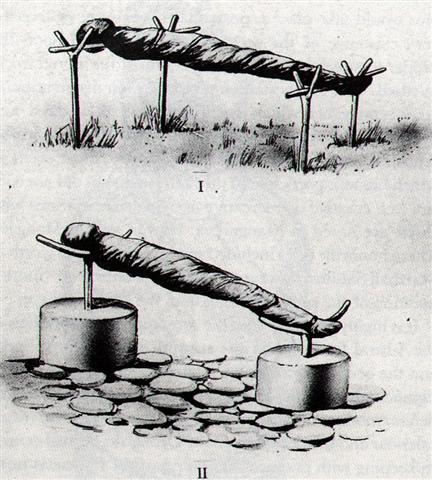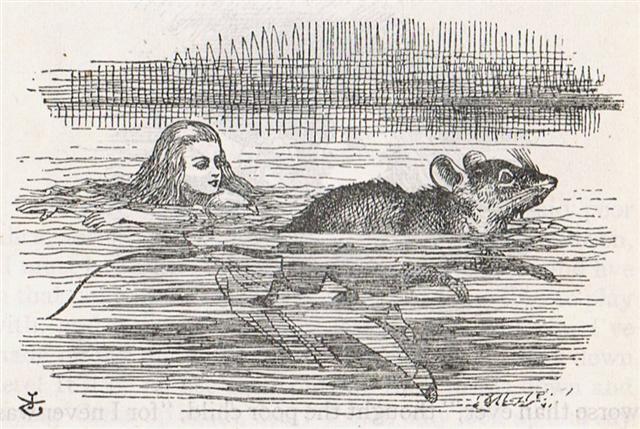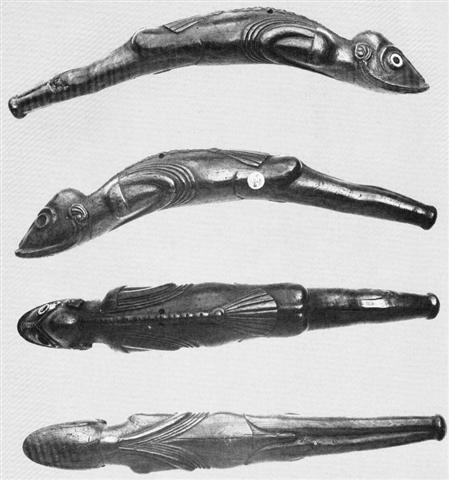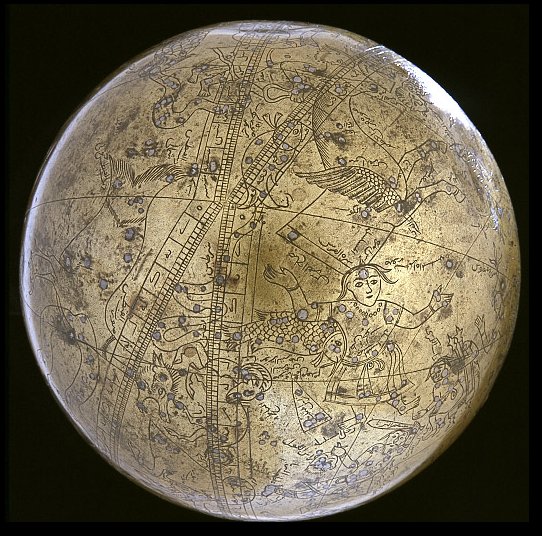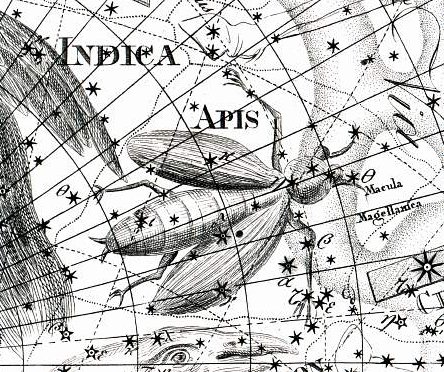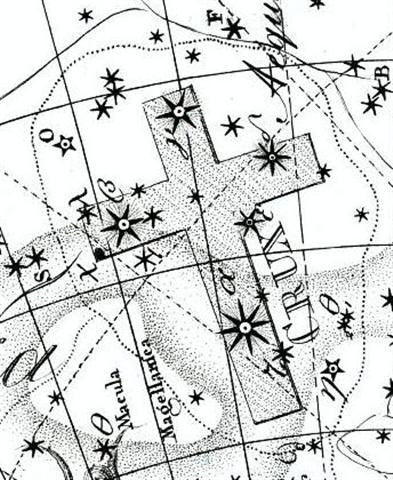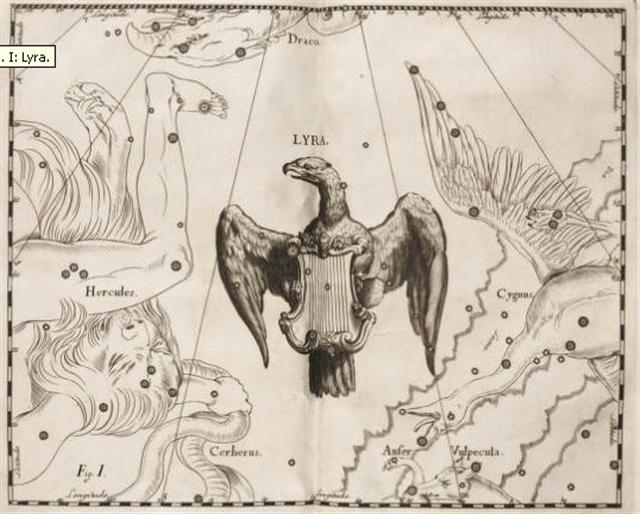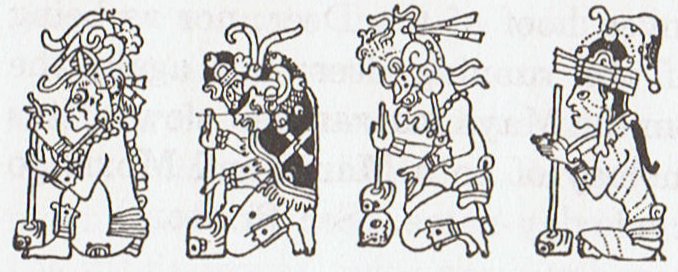... My son, said Makea tutara Tu. To crush into puree, like women of old did, crushing sweet potatoes and mixing them with cooked egg to give the children. Vanaga. To mix, to confound. Churchill. Tara. 1. Thorn: tara miro. 2. Spur: tara moa. 3. Corner; te tara o te hare, corner of house; tara o te ahu, corner of ahu. Vanaga. (1. Dollar; moni tara, id.) 2. Thorn, spike, horn; taratara, prickly, rough, full of rocks. P Pau.: taratara, a ray, a beam; tare, a spine, a thorn. Mgv.: tara, spine, thorn, horn, crest, fishbone. Mq.: taá, spine, needle, thorn, sharp point, dart, harpoon; taa, the corner of a house, angle. Ta.: tara, spine, horn, spur, the corner of a house, angle. Sa.: tala, the round end of a house. Ma.: tara, the side wall of a house. 3. To announce, to proclaim, to promulgate, to call, to slander; tatara, to make a genealogy. P Pau.: fakatara, to enjoin. Mq.: taá, to cry, to call. 4. Mgv.: tara, a species of banana. Mq.: taa, a plant, a bird. Ma.: tara, a bird. 5. Ta.: tara, enchantment. Ma.: tara, an incantation. 6. Ta.: tara, to untie. Sa.: tala, id. Ha.: kala, id. Churchill one evening at dusk,
... In Norse mythology, Ratatoskr (drilling tooth, sometimes anglicized Ratatosk) is a red squirrel who runs up and down with messages in the world tree Yggdrasill and spreads gossip. In particular he ferried insults between the eagle at the top of Yggdrasill, and the dragon Níðhöggr beneath its roots ...
when they were sitting outside the house, I have heard from your mother and from others that you are brave and capable, and that in everything you have undertaken in your own country you have succeeded. That says a great deal for you. But I have to warn you: now that you have come to live in your father's country you will find that things are different. I am afraid that here you may meet your downfall at last. 'What do you mean?' said Maui. 'What things are there here that could be my downfall?' 'There is your great ancestress Hine nui te Po', said Makea, gravely.
During the nights the Sun runs withershins (counterclockwise), which explains why the hours increase towards the left in astronomical charts - west is at right and east at left. Although up in the daytime light births come before death.
And he watched Maui's face as he mentioned the name of Great Hine the Night, the daughter and the wife of Tane and goddess of death. But Maui did not move an eyelid. 'You may see her, if you look', Makea went on, pointing to where the sun had gone down, 'flashing over there, and opening and closing, as it were'. His thoughts were on death as he spoke. For it was the will of Hine nui, ever since she turned her back on Tane and descended to Rarohenga, Hega. Hegahega, reddish, ruddy. Hehega, to dawn; ki hehega mai te raá, when the sun rises. Vanaga. Hehegaraa, sunrise. PS Sa.: sesega, to be dazzled as by the sun. Fu.: sega, the beginning of daybreak. Niuē: hegahega, the red light or rays at sunset. Viti: sesē, to dawn. Churchill. Raro. Bottom, bottom end, lower part; when used as a locative adverb, it is preceded by a preposition: a raro, down (lit.: along down); ki raro. downwards; mai raro, upwards (lit.: from down); o raro, lower (lit.: of down). When used with a noun the same preposition is repeated: ki ea-mai mai raro mai te rano, when coming up from the bottom of the crater. Hé-ara, he-ûi a raro o te vai kava, concentrating, he looked at the sea-bottom. I te ahiahi-ata he garo te raá ki raro ki te vai kava. In the evening the sun disappears under the sea. Gutu raro, lower lip. Ana ká i te umu, he hahei hai rito i raro, when you cook food (lit.: light the oven) you cover it all around with banana leaves at the bottom. Koreha o raro o te oone, earthworm. Manava topa ki raro, humble, to humiliate. Te tagata hau-ha'a i raro, ina ekó ma'u-tako'a i te hauha'a o te kaiga nei ana mate; bienes terrenales cuando muere → a rich man in this world world cannot take his earthly belongings with him when he dies. Ariga moe ki raro, to lie flat on the ground. Hakarere ki raro, to put down. Ku-toka-ana te vai i raro i te puna, there is little water left at the bottom of the lake. Hakatopa ki raro, to knock down, to subjugate. that all her descendants in the world of light should follow her down that same path, returning to their mother's womb that they might be mourned and wept for. Aue. Ah, alas. Aueue, oh. P Pau., Ta.: aue, alas. Mgv.: aue, auhe, alas. Mq.: aue, oh, alas; auhe, a sigh. Exclamation in general representing the most primordial type of speech, it seems that this may be reduced to recognizable elements. The e is throughout these languages a vocative or hailing sign, commonly postpositive in relation to the person hailed. In the examination of au we have shown that the primal first person singular designation is u. With the comparatively scanty material afforded by this vocabulary we may not attempt to define the use of a but we have no hesitation in noting that proof based on wider studies will show it to have, inter alia, a characteristic function as a word-maker. In a very high degree, then, a-u-e is represented by a common English interjection 'oh my!' in which oh = a, my = u, and e = !. Churchill. What is this cry which our primitive islanders share with the animals? Look at its elements, all full-throated. First we have a, the sound of mouth open, fauces open, lungs full of air. As air expires the sound recedes in the mouth towards the palate and we find the u. Last comes the conscious finish of the utterance, the muscles begin to retract, the sound-making point is forced forward and the sound is e. If the man had but a few more cubic centimeters of lung capacity he could attain cow volumne for his cry, or interjection, since it amounts to the same thing. Churchill 2. When the new moon appeared women assembled and bewailed those who had died since the last one, uttering the following lament: 'Alas! O moon! Thou has returned to life, but our departed beloved ones have not. Thou has bathed in the waiora a Tane, and had thy life renewed, but there is no fount to restore life to our departed ones. Alas ... (Makemson) 'Oh, nonsense', said Maui affectionately to the old man. 'I don't think about that sort of thing, and you shouldn't either. There's no point in being afraid. We might just as well find out whether we are intended to die, or to live forever.' Now Maui had not forgotten what his mother once said about Hine nui te Po: that he would some day vanquish her, and death would then have no power over men. He remembered this now, and was not moved by his father's fears. But Hine nui was the sister of Mahuika, and she knew of Maui's dangerous trickery at the abode of fire, and was resolved to protect her other descendants from further mischief of this kind.
... What might lie behind this statement is revealed by a contemporary Mopán Maya tale in which Lord K'in (the sun) goes from his home in the east to the center of the sky and then back to the east again; it appears that he goes clear across the sky because he has placed a mirror at its center. To interpret the movements of the sun in this manner is to model it on Venus as morning star, which both rises and sets in the east ...
... Mahuru was the personification of spring ...
Huru. Custom, tradition, behaviour, manners, situation, circumstances; poki huru hare, child who stays inside (to keep a fair complexion); te huru o te tagata rivariva, a fine person's behaviour; pehé te huru o Hiva? what is the situation on the mainland? Huruhuru, plumage, feathers (the short feathers, not the tail feathers), fleece of sheep. Vanaga. Samoa: sulu, a torch; to light by a torch; sulusulu, to carry a torch; susulu, to shine (used of the heavenly bodies and of fire). Futuna: susulu, the brightness of the moon. Tonga: huluaki, huluia, huluhulu, to light, to enlighten; fakahuhulu, to shine; iuhulu, a torch or flambeau, to light with a torch. Niuē: hulu, a torch; huhulu, to shine (as the moon). Maori: huru, the glow of the sun before rising, the glow of fire. Churchill 2. Ta.: tahuhu, ridgepole. Ma.: tahuhu, id. Mgv.: tohuhu, a ridgepole. Mq.: tohuhu, ridge, roofing. Churchill.
... He Maro (June): Because of the cold weather, nothing grows (tupu meme), and there is hardly any work done in the fields. Hens grow an abundance of feathers, which are used for the festivities. The time of the great festivities begins, also for the father-in-law (te ngongoro mo te hungavai). There is much singing (riu) ... Maro: A sort of small banner or pennant of bird feathers tied to a stick. Maroa: 1. To stand up, to stand. 2. Fathom (measure). See kumi. Vanaga. Maro: 1. June. 2. Dish-cloth T P Mgv.: maro, a small girdle or breech clout. Ta.: maro, girdle. Maroa: 1. A fathom; maroa hahaga, to measure. Mq.: maó, a fathom. 2. Upright, stand up, get up, stop, halt. Mq.: maó, to get up, to stand up. Churchill. Pau.: Maro, hard, rough, stubborn. Mgv.: maro, hard, obdurate, tough. Ta.: mârô, obstinate, headstrong. Sa.: mālō, strong. Ma.: maro, hard, stubborn. Churchill. Ta.: Maro, dry, desiccated. Mq.: mao, thirst, desiccated. Fu.: malo, dry. Ha.: malo, maloo, id. Churchill. Mgv.: Maroro, the flying fish. (Ta.: marara, id.) Mq.: maoo, id. Sa.: malolo, id. Ma.: maroro, id. Churchill. MALO ¹, s. Haw., a strip of kapa or cloth tied around the loins of men to hide the sexual organs. Polynesian, ubique, malo, maro, id., ceinture, girdle-cloth, breech-cloth. Sanskr., mal, mall, to hold; malla, a cup; maltaka, a leaf to wrap up something, a cup; malâ-mallaka, a piece of cloth worn over the privities. Greek, μηρνομαι; Dor., μαρνομαι, to draw up, furl, wind round. No etymon in Liddell and Scott. MALO ², v. Haw., to dry up, as water in pools or rivers, be dry, as land, in opposition to water, to wither, as vegetables drying up; maloo, id., dry barren. Ta., maro, dry, not wet; marohi, dry, withered. A later application of this word in a derivative sense is probably the Sam. malo, to be hard, be strong; malosi, strong; the Marqu. mao, firm, solid; N. Zeal., maroke, dry; Rarot., Mang., maro, dry and hard, as land.Sanskr., mŗi, to die; maru, a desert, a mountain; marut, the deities of wind; marka, a body; markara, a barren woman; mart-ya, a mortar, the earth; mîra, ocean. For the argument by which A. Pictet connects maru and mira with mŗi, see 'Orig. Ind.Eur', i. 110-111. It is doubtless correct. But in that case 'to die' could hardly have been the primary sense or conception of mŗi. To the early Aryans the desert, the maru, which approached their abodes on the west, must have presented itself primarily under the aspect of 'dry, arid, sterile, barren', a sense still retained in the Polynesian maro. Hence the sense of 'to wither, to die', is a secondary one. Again, those ancient Aryans called the deity of the wind the Marut; and if that word, as it probably does, refers itself to the root or stem mŗi, the primary sense of that word was certainly not 'to die', for the winds are not necessarily 'killing', but they are 'drying', and that is probably the original sense of their name. Lat., morior, mors, &c. Sax., mor, Eng., moor, equivalent to the Sanskr. maru. (Fornander) ... The pantheon of creator gods, the spirits of deified ancestors, and the adventures of legendary, semi-divine heroes are central to spiritual life in Polynesia. Extant figures of gods and deified ancestors often bear scant resemblance to their original presentation, for they were frequently wrapped in barkcloth and ornamented with tufts of feathers as a sign of their tapu or sacred, restricted status ... In many Polynesian cultures the bodies of gods were conceived of as covered with feathers and they were frequently associated with birds: in Tahiti and the Society Islands, bird calls on the marae signaled the presence of the gods. Hawaiian feathered god figures generally depict only the head and neck of the god ...
... Long ago in the very beginning of time there dwelt within a shell an infant god whose name was Ta'aroa. He was Ta'aroa the unique one, the ancestor of all gods, the creator of the universe whose natures were myriad, whose backbone was the ridgepole of the world, whose ribs were its supporters. The shell was called Rumia, Upset. Becoming aware at last of his own existence and oppressed by a yearning loneliness Ta'aroa broke open his shell and, looking out, beheld the black limitless expanse of empty space. Hopefully, he shouted, but no voice answered him. He was alone in the vast cosmos. Within the broken Rumia he grew a new shell to shut out the primeval void. Eons passed and Ta'aroa grew to be a lad conscious of his own vigor and potentialities. Impatience grew upon him until he could bear his isolation no longer. He broke forth from his shell with energy, resolved to create beings like himself who would banish his loneliness forever. Ta'aroa's first act was to construct a firm foundation for the earth, using the strong second shell for stratum rock. The shell Rumia became his dwelling place, the overarching dome of the sky. It was a confined sky enclosing the world just forming, and in its deep and abiding night the lad attained manhood. There were no Sun, Moon, or stars and only one other living creature, the Great Octopus. The sun was held down close above the slowly evolving earth by the Great Octopus, Tumu-rai-fenua, Foundation of Heaven and Earth, who lived in the primeval waters on which the earth floated. One of his arms was to the north, one to the south, one to the east and another to the west. With these vast arms he held the sky, the shell Rumia, close down against the earth. Meanwhile on the earth itself various generations of rocks were born, one after the other; then sand appeared. Roots were born and as they spread they held the sand together and the land became firm. Ta'aroa sat in his heaven above the earth and conjured forth gods with his words. When he shook off his red and yellow feathers they drifted down and became trees ... ... Hanga Te Pau, the landing site of Ira and his band of explorers, is the natural anchorage for those approaching Vinapu by sea. The remarkable stone fronts of the ahu of Vinapu are all facing the sea. The explorers landed at Hanga Te Pau during the month 'Maro', that is, June ... 2. The cult place of Vinapu is located between the fifth and sixth segment of the dream voyage of Hau Maka. These segments, named 'Te Kioe Uri' (inland from Vinapu) and 'Te Piringa Aniva' (near Hanga Pau Kura) flank Vinapu from both the west and the east. The decoded meaning of the names 'the dark rat' (i.e., the island king as the recipient of gifts) and 'the gathering place of the island population' (for the purpose of presenting the island king with gifts) links them with the month 'Maro', which is June ... ... The arrangement of the southern birds according to Hevelius shows Apus below the tail bird Pavus (Peacock), which in turn has the beak bird (Tucana) in front: ...The title is an appropriate one for enduring stars, as this bird [Pavus] has long before been a symbol of immortality, fancifully said to be from the annual renewing of its feathers; but this is common to all birds, and the symbolism probably is from the fact that its starry tail rendered the peacock sacred to Juno, the immortal queen of the heavens, and thus in classical times, as in the days of chivalry, an object of adjuration. This bird was still further astronomical in originally having been Argos, the builder of the ship Argo, who was changed by Juno to a peacock when his vessel was transformed to the sky, where he has since rejoined her ... Above the Toucan the astronomer's bird (Grus) stretched his long neck high with the bird on fire (Phoenix) in front, from where the Eridanus River originated - which was at the opposite side of the sky compared to where the Hydra ended at the black bird Corvus ...
... In Bayer's Uranometria from the year 1603 the Bird of Paradise is depicted among the constellations in the southern sky. The name Apus means 'without feet'. The great paradise birds of East India have exceedingly beautiful feathers but very ugly feet. When anciently the natives tried to sell these birds to the Europeans they therefore first cut off their feet ... 'My child', said Makea now in a tone of deep sorrow, 'there has been a bad omen for us. When I performed the tohi ceremony over you I missed out a part of the prayers.
... According to Gylfaginning, following the murder of Baldr by Loki, the other gods brought his body down to the sea and laid him to rest on the ship. They would have launched it out into the water and kindled a funeral pyre for Baldr but were unable to move the great vessel without the help of the giantess Hyrrokkin [→ Hurricane], who was sent for out of Jötunheim. She then flung the ship so violently down the rollers at the first push that flames appeared and the earth trembled, much to the annoyance of Thor. Along with Baldr, his wife Nanna was also borne to the funeral pyre after she had died of grief. As Thor was consecrating the fire with his hammer Mjolnir, a dwarf named Litr began cavorting at his feet. Thor then kicked him into the flames and the dwarf was burned up as well ...
... They walked in crowds when they arrived at Tulan, and there was no fire. Only those with Tohil had it: this was the tribe whose god was first to generate fire. How it was generated is not clear. Their fire was already burning when Jaguar Quitze and Jaguar Night first saw it: 'Alas! Fire has not yet become ours. We'll die from the cold', they said. And then Tohil spoke: 'Do not grieve. You will have your own even when the fire you're talking about has been lost', Tohil told them. 'Aren't you a true god! Our sustenance and our support! Our god!' they said when they gave thanks for what Tohil had said. 'Very well, in truth, I am your god: so be it. I am your lord: so be it,' the penitents and sacrificers were told by Tohil. And this was the warming of the tribes. They were pleased by their fire. After that a great downpour began, which cut short the fire of the tribes. And hail fell thickly on all the tribes, and their fires were put out by the hail. Their fires didn't start up again. So then Jaguar Quitze and Jaguar Night asked for their fire again: 'Tohil, we'll be finished off by the cold', they told Tohil. 'Well, do not grive', said Tohil. Then he started a fire. He pivoted inside his sandal ...
I remembered it too late. I am afraid this means that you are going to die.' 'What's she like, Hine nui te Po?' asked Maui. 'Look over there', said Makea, pointing to the ice-cold mountains beneath the flaming clouds of sunset. 'What you see there is Hine nui, flashing where the sky meets the earth. Her body is like a woman's, but the pupils of her eyes are greenstone and her hair is kelp. Her mouth is that of a barracuda, and in the place where men enter her she has sharp teeth of obsidian and greenstone.' 'Do you think she is as fierce as Tama nui te ra, who burns things up by his heat?' asked Maui. 'Did I not make life possible for man by laming him and making him keep his distance? Was it not I who made him feeble with my enchanted weapon? And did the sea not cover much more of the earth until I fished up land with my enchanted hook?' 'All that is very true', said Makea. 'And you are my last-born son, and the strength of my old age.
Very well then, be it as it will. Go there, and visit your ancestress if that is what you wish. You will find her there where the earth meets the sky.' And they sat for a while in the dusk, until the red clouds turned grey and the mountains into black. Next morning early, Maui went out looking for companions for the expedition. The birds were up when he left, and among them he succeeded in finding several who were willing to go with him. There was tiwaiwaka, the little fantail, flickering about inquisitively and following Maui along the track as if he might have something for him.
There was miromiro, the grey warbler, tataeko, the whitehead, and pitoitoi, the [red] robin, who is almost as tame and curious as the fantail. Maui assembled a party of these friends and told them what he intended to do. They knew it was an act of great impiety to invade the realm of Hine nui te Po with mischievous intentions. And now, they learned, it was Maui's idea to enter her very body. He proposed to pass through the womb of Great Hine the Night, and come out by her mouth. If he succeeded, death would no longer have the last word with regard to man; or so his mother had told him long ago. This, then, was to be the greatest of all his exploits. Maui, who once had travelled eastward to the very edge of the pit where the sun rose, and southward over the great Ocean of Kiwa to where he fished up land, and all the way to the dwelling-place of Mahuika - Maui now proposed a journey to defy great Hine in the west. Taking his enchanted weapon, the sacred jawbone of Muri ranga whenua, he twisted its strings around his waist.
Then he went into the house and threw off his clothes, and the skin on his hips and thighs was as handsome as the skin of a mackerel, with the tattoed scrolls that had been carved there with the chisel of Uetonga. And off they went, with the birds twittering in their excitement. Ue. Uéué, to move about, to flutter; he-uéué te kahu i te tokerau, the clothes flutter in the wind; poki oho ta'e uéué, obedient child. Vanaga. 1. Alas. Mq.: ue, to groan. 2. To beg (ui). Ueue: 1. To shake (eueue); kirikiri ueue, stone for sling. PS Pau.: ueue, to shake the head. Mq.: kaueue, to shake. Ta.: ue, id. Sa.: lue, to shake, To.: ue'í, to shake, to move; luelue, to move, to roll as a vessel in a calm. Niuē: luelue, to quake, to shake. Uvea: uei, to shake; ueue, to move. Viti: ue, to move in a confused or tumultous manner. 2. To lace. Churchill. Toga. 1. Winter season. Two seasons used to be distinguished in ancient times: hora, summer, and toga, winter. 2. To lean against somehing; to hold something fast; support, post supporting the roof. 3. To throw something with a sudden movement. 4. To feed oneself, to eat enough; e-toga koe ana oho ki te aga, eat well first when you go to work. Vanaga. 1. Winter. P Pau., Mgv.: toga, south. Mq.: tuatoka, east wind. Ta.: toa, south. 2. Column, prop; togatoga, prop, stay. Togariki, northeast wind. Churchill. Wooden platform for a dead chief: ka tuu i te toga (Bb8-42),
when the wooden platform has been erected.
Barthel 2. The expressions Tonga, Kona, Toa (Sam., Haw., Tah.), to indicate the quarter of an island or of the wind, between the south and west, and Tokelau, Toerau, Koolau (Sam., Haw., Tah.), to indicate the opposite directions from north to east - expressions universal throughout Polynesia, and but little modified by subsequent local circumstances - point strongly to a former habitat in lands where the regular monsoons prevailed. Etymologically 'Tonga', 'Kona', contracted from 'To-anga' or 'Ko-ana', signifies 'the setting', seil. of the sun. 'Toke-lau', of which the other forms are merely dialectical variations, signifies 'the cold, chilly sea'. Fornander. When they arrived at the place where Hine nui lay asleep with her legs apart and they could see those flints that were set between her thighs, Maui said to his companions: 'Now, my little friends, when you see me crawl into the body of this old chieftainess, whatever you do, do not laugh. When I have passed right through her and am coming out of her mouth, then you can laugh if you want to. But not until then, whatever you do.' His friends twittered and fluttered about him and flew in his way. 'O sir', they cried, 'you will be killed if you go in there.' 'No', said Maui, holding up his enchanted jawbone. 'I shall not - unless you spoil it. She is asleep now. If you start laughing as soon as I cross the threshold, you will wake her up, and she will certainly kill me at once. But if you can keep quiet until I am on the point of coming out, I shall live and Hine nui will die, and men will live thereafter for as long as they wish.' ... The Symplegades ... or Clashing Rocks, also known as the Cyanean Rocks, were, according to Greek mythology, a pair of rocks at the Bosphorus that clashed together randomly. They were defeated by Jason and the Argonauts, who would have been lost and killed by the rocks except for Phineus' advice. Jason let a dove fly between the rocks; it lost only its tail feathers. The Argonauts rowed mightily to get through and lost only part of the stern ornament. After that, the Symplegades stopped moving permanently ... The Argonauts, with the Golden Fleece on board, had to pass the Symplegades, the clashing rocks. Once a ship with its crew came through unharmed - so the 'blessed ones' (makaroi) had decided long ago - the Symplegades would stay fixed, and be clashing rocks no longer. After that 'accepting the novel laws of the fixed earth', they should 'offer an easy passage to all ships, once they had learnt defeat'. This is only one station on the long 'opening travel' of the Argonauts transporting the Golden Fleece (of a ram), undertaken in all probability to introduce the Age of Aries, but it demonstrates best the relevant point, namely, 'the novel laws' ... So his friends moved out of his way. 'Go on in then, brave Maui', they said, 'but do take care of yourself'. Maui at first assumed the form of a kiore, or rat, to enter the body of Hine.
... In China, with Capricornus, Pisces, and a part of Sagittarius, it [Aquarius] constituted the early Serpent, or Turtle, Tien Yuen; and later was known as Hiuen Ying, the Dark Warrior and Hero, or Darkly Flourishing One, the Hiuen Wu, or Hiuen Heaou, of the Han dynasty, which Dupuis gave as Hiven Mao. It was a symbol of the emperor Tchoun Hin, in whose reign was a great deluge; but after the Jesuits came in it became Paou Ping, the Precious Vase. It contained three of the sieu, and headed the list of zodiac signs as the Rat, which in the far East was the ideograph for 'water', and still so remains in the almanacs of Central Asia, Cochin China, and Japan ... But tataeko, the little whitehead, said he would never succeed in that form. So he took the form of a toke, or earth-worm. But tiwaiwaka the fantail, who did not like worms, was against this. So Maui turned himself into a moko huruhuru, a kind of caterpillar that glistens.
It was agreed that this looked best, and so Maui started forth, with comical movements. The little birds now did their best to comply with Maui's wish. They sat as still as they could, and held their beaks shut tight, and tried not to laugh. But it was impossible. It was the way Maui went in that gave them the giggles, and in a moment little tiwaiwaka the fantail could no longer contain himself. He laughed out loud, with his merry, cheeky note, and danced about with delight, his tail flickering and his beak snapping. Hine nui awoke with a start. She realised what was happening, and in a moment it was all over with Maui. By the way of rebirth he met his end. Thus died this Maui we have spoken of, who was formed in the topknot of Taranga
and cast in the sea, but was saved and nurtured to lead a life of mischief. And thus did the laughter of his companions at the last and most scandalous of his exploits deprive mankind of immortality. For Hine nui always knew what Maui had it in mind to do to her. But she knew that it was best that man should die, and return to the darkness from which he comes, down that path which she made to Rarohenga. Wherefore our people have the saying: 'Death came to the mighty when Maui was strangled by Hine nui te Po, and so it has remained in the world' ...
... From FEBRUARY 1 to JANUARY 31 there were 365 days. From January 1 to April 5 there were 365 + 95 = 460 days: ... In China, every year about the beginning of April, certain officials called Sz'hüen used of old to go about the country armed with wooden clappers. Their business was to summon the people and command them to put out every fire. This was the beginning of the season called Han-shih-tsieh, or 'eating of cold food'. For three days all household fires remained extinct as a preparation for the solemn renewal of the fire, which took place on the fifth or sixth day after the winter solstice [Sic!] ... Day 355 (winter solstice north of the equator) + 6 = 361 = 19 * 19. Or in a leap year: 356 + 5 = 361 = 19 * 19. 355 (356) - 3 = 352 (353) = December 18 (*272) = *89 (June 18) + *183. There were 3 days from June 18 to June 21 (solstice). And from *95 (Canopus) to *380 (1h) there were *285 (= 364 - 79) right ascension days. (25h / 24h = ca 1.04 (= 8 * 13 / 100).... Ecclesiastically, the equinox is reckoned to be on 21 March (even though the equinox occurs, astronomically speaking, on 20 March [*364] in most years) ...
|
|||||||||||||||||||||||||||||||||||||||||||||||||||||||||||||||||||||||||||||||||||||||||||||||||||||||||||||||||||||||||||||||||||||||||||||||||||||||||||||||||||||||||||||||||||||||||||||

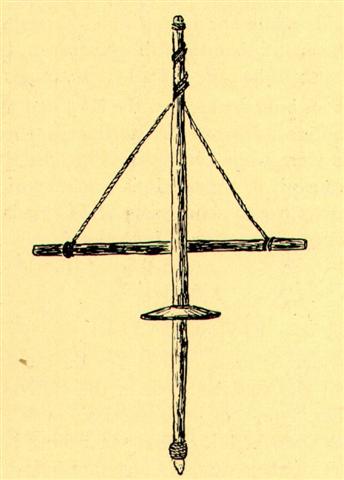

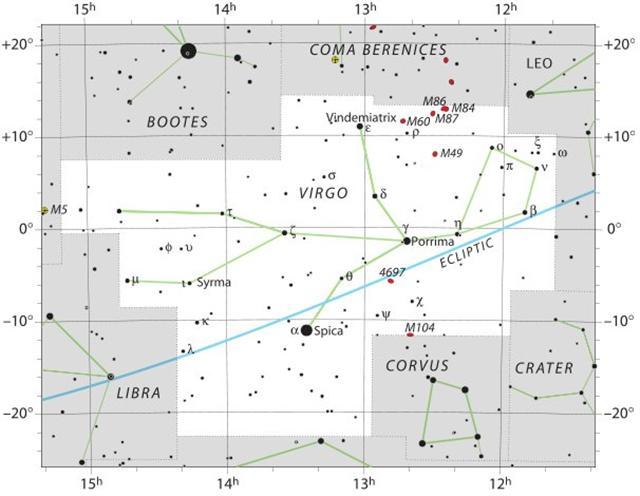
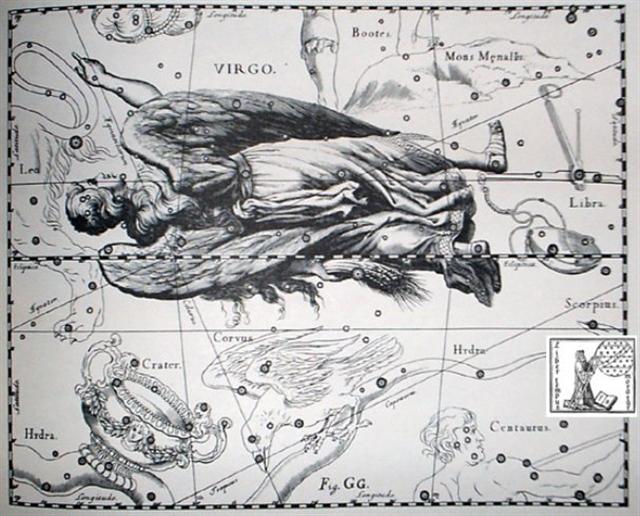
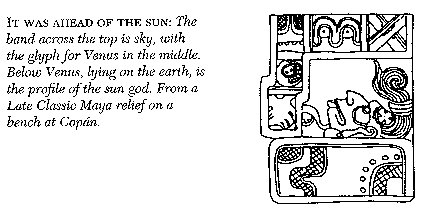
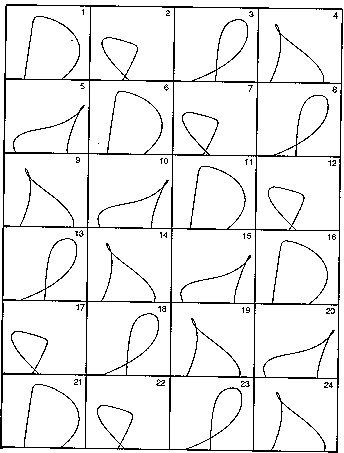


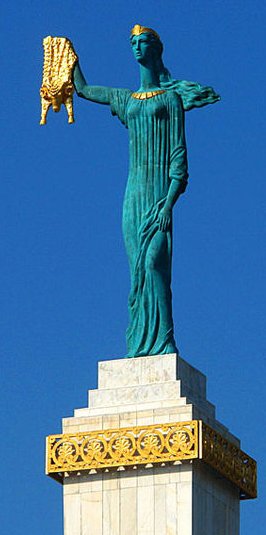












.jpg)
